Fritextsökning
Artiklar per år
Innehållstyper
-
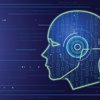
Elon Musks hjärnchip får grönt ljus för att testas på människor
Ett implantat som ska göra det möjligt att styra datorer med tankens kraft. Nu har Elon Musks Neuralink fått klartecken för kliniska studier med sitt hjärnchip på människor – och söker försökspersoner.
-

Small robots to deliver pharmaceuticals to the body
Robots that can operate inside the body and a platform that combines ultrasound with AI. These are a couple of the technologies that have qualified for a list that aims to promote sustainable entrepreneurship.
-

Lucy Robertshaw: Artificial intelligence – is this really going to transform a patient’s life?
In a column Lucy Robertshaw reflects on how AI and new regulations will affect healthcare, innovation and the lives of future patients.
-

Anna Törner: The minute between life and death
“I have never told anyone about this day that happened more than 20 years ago. But I sometimes reflect on what happened, on what might have happened. When I try to understand why I haven’t told anyone, I find the answer: a feeling of shame. There is no forgiveness for something like this, even though it is very human to be distracted for a moment,” Anna Törner writes in a column.
-
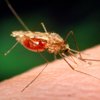
A new malaria vaccine offers hope but much more research is still needed
There has long been no vaccine against malaria, but there have been breakthroughs in recent years. However, it is still unclear how we become immune to the malaria parasite, and this is a vital piece of the puzzle for creating effective vaccines, says malaria researcher Kristina Persson.
-
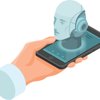
Study: Chat GPT is more empathetic than doctors
The AI tool Chat GPT is not only more accurate when it comes to answering patient questions – the chatbot is also perceived as almost 10 times more empathetic than real doctors, a new study reveals.
-
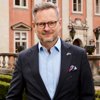
Column: ”Life as a F1 race”
"The F1 car makes several pit stops during a race and during a lifetime the human being may also have to come in several times for maintenance", Björn Ursing writes in a column.
-

Rapid development in blood analysis – “Sweden is leading the race”
Thousands of analytical tests using just one single drop of blood. What was revealed as a hoax just a few years ago is now a reality, according to KTH professor and serial entrepreneur Mathias Uhlén.
-

Fjärrprogrammerad behandling för patienter med nervsmärta
Behandling av neuropatisk smärta i hjärna och ryggmärg kan nu följas upp och omprogrammeras på distans vid Akademiska sjukhuset i Uppsala.
-
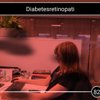
Ny app visar hur synskadade upplever världen
En ny app visar hur allt från grå starr till makuladegeneration och ålderssynthet yttrar sig — ur den synskadades synvinkel. Syftet är att ge seende en inblick i hur personer med synnedsättning uppfattar sin vardag.
-

Medtech-företag blev årets snabbväxare
Medtech-bolaget Infosolutions toppar årets rankning från Deloitte över Sveriges snabbast växande teknikbolag. På fyra år har bolaget ökat sin omsättning med 12 815 (!) procent.
-

Bubblarna på innovationslistan
Långt mer än 20 viktiga innovationer som hjälper personer till bättre hälsa har svenska upphovspersoner. Här skriver vi om ett urval av dessa som alla har kommit det senaste halvseklet.
-
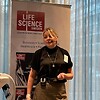
Swedish breakthrough in Alzheimer’s: “We can finally present great data”
Treatments for Alzheimer’s disease are currently among the hottest topics in drug development. Two Swedish research companies with high ambitions and successes in the field participated in Bioscience 2022 conference at Life City in Hagastaden, Stockholm.
-
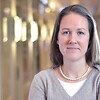
"Are we doing business the wrong way around in the Life Science Sector?"
For the past 50 years we have created solutions for problems that we thought would solve the problems. Pharmaceuticals have created big block buster drugs which were great for that time but now we realise that these drugs were in fact only tested in white men and certainly not for patients who are older who are taking a number of medications.
-
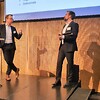
”Ett perfekt möte på hösten”
"Som vanligt är jag mest sugen på det oväntade". Så svarar Johan Rockberg, professor vid KTH, på frågan om vad han ser mest fram emot på kongressen Bioscience som han ska moderera nästa vecka.
-
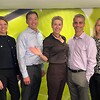
Cytel Inc acquires the SDS Group
The multinational statistical software developer and contract research organization Cytel Inc, headquartered in Massachusetts, USA, acquires the Swedish consulting company SDS Life Science.
-
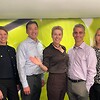
SDS-koncernen köps av amerikanskt bolag
Cytel Inc, med huvudkontor i Massachusetts, USA, förvärvar det svenska konsultbolaget SDS Life Science.
-

The TFS family is growing
TFS HealthScience is a European based CRO company with broad expertise and experiences in the biotech and pharmaceutical sector. The company is growing and the TFS family welcomes new members.
-

Rätt inställd hörapparat kan minska tinnitusbesvär
Enligt en studie från Lunds universitet kan en enkel undersökning och rätt inställning av hörapparater minska tinnitusbesvär.
-

Biosimilars bring price pressure, but are they sufficiently used?
When biosimilars were introduced just over 16 years ago, hopes were raised that they would give many more patients access to effective but otherwise extremely expensive treatments with biological drugs. So, how well has Swedish healthcare used biosimilars? The answer partly depends on whom you ask.
-
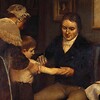
The first vaccine derived from cowpox
The British rural doctor could not forget the words of the peasant girl. Could that really be true? A couple of decades later, on 14 May 1796, he performed the world’s first smallpox vaccination, and a medical breakthrough had occurred.
-

Anna Törner: To kill your darlings
Hopes were high when Anna Törner and her colleague started a study on a dietary supplement that seemed unbelievably good. “Enthusiastically, we dreamed of exciting results and perhaps a publication in a high-impact journal,” she writes in a column.
-
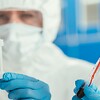
New rules for diagnostic products, but who will certify them? “An extreme shortage area”
In less than two weeks, new and stricter EU rules will enter into force for thousands of products used in important diagnoses of, among other things, cancer and Covid-19. However, not one single institute in the entire Nordic region is able to certify the diagnostics companies’ products according to the new regulations. “In the end, it risks affecting patients,” says Anna Lefèvre Skjöldebrand, CEO of Swedish Medtech.
-
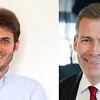
Ny modell ska identifiera rätt dos litium vid bipolär sjukdom
Ny forskning vid Karolinska institutet kan bidra till att lösa ett stort problem inom behandling av bipolär sjukdom: att hitta rätt dos litium för varje patient.